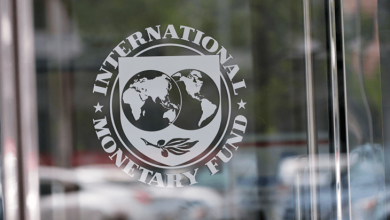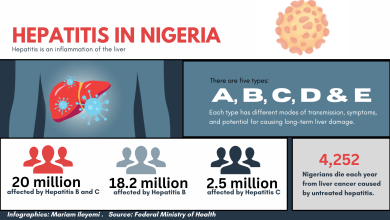A new UN report urges Europe to take action on the triple environmental crisis

Action is needed on emissions, waste, pollution and loss of biodiversity, he said, adding that solutions can be found, by focusing on the “shared economy” and sustainable infrastructure.
The call came during the Ninth Round for the Ministerial Conference of Europe, which runs until Friday, in a report written by the UN Economic Commission for Europe (UNECE) and the UN Environment Program (UNEP).
“The findings of this evaluation, almost halfway through the 2030 Agenda, must be a wake-up call for the region,” UNECE chief Olga Algayerova said. “The historic drought that the region faced this summer, announces what we should expect in the coming years and shows that there is no more time to lose”.
Fighting air pollution
Despite some progress, the report notes that Air pollution is the biggest health hazard in the area.
Although 41 European countries recorded a 13 percent reduction in premature deaths from long-term fine particle exposure, concentration levels continue to exceed the 2005 World Health Organization (WHO) air quality guidelines.
The study calls for additional measures, including the best available strategies for cutting emissions and reducing those coming from traffic.
“The science is unquestionable,” said UNEP chief Inger Andersen. “The only way forward is to secure a clean and green future”.
Reduces gas emissions
Although greenhouse gas emissions have decreased in western Europe – most between 2014 and 2019 – they are offset by increases throughout the rest of the region.
And while the use of renewable energy has risen in 29 countries between 2013 and 2017, the region still depends on fossil fuels, which account for some 78 percent of energy consumption.
The report recommends governments to eliminate or modify harmful subsidies and develop incentives to them promote decarbonization by moving investments towards renewables.
Time for a plan
According to the report, the region’s watersheds, lakes and aquifers are under multiple stresses – with climate change providing additional challenges such as floods, droughts and water-borne diseases.
As pollution such as municipal and industrial wastewater discharges are public health concerns, The report advocates for greater water conservation and resource-based solutions for retention basins.
“We know what we need to do, and we must do it together,” Ms. Andersen said. “As citizens feel the pinch and face higher energy bills than ever before, as they see record temperatures and their water reservoirs dwindle … countries must show that the system just come”.
Children swimming in Praia da Poça, a small popular beach at the beginning of Estoril – Cascais coast, in Portugal.
Share economy
A shared and more efficient economy – where production and consumption support each other and focus on resource efficiency – will help to tackle the growing waste and use of resources.
Even where there is a strong political commitment to a shared economy, such as in the European Union and other Western European countries, the original waste continues to grow.
In response, the report urges governments to take steps to prevent waste in production, use, and recyclingincluding through financial incentives such as tax relief, and it supports that a European e-waste management partnership will enable the recycling of valuable materials.
Meanwhile, mineral extraction has tripled in the last half century, accounting for more than 90 percent of biodiversity loss and water stress and about 50 percent of climate change impacts.
Developing a decentralized economy, local governments can strengthen the management of raw materials.
“As highlighted in the report, the UN has developed various tools and approaches to cut pollution, protect the environment, reduce resource consumption and promote the transition to a shared economy. Their implementation must be very fast,” Ms. Algayerova reminded.
“This will require urgent and bold political commitment and behavioral changes from all of us before it’s too late”.
Clean air is important to human health all over the world.
Infrastructure development
During the post-COVID recovery, sustainable infrastructure investment has been shown to have a major impact.
However, most countries have not yet developed systems that incorporate sustainability, such as pollution pricing, ecosystem services, or biodiversity protection – into the cost-benefit analysis of large infrastructure projects. The UN report offers tools to help remedy this.
“This analysis can be a guide for reducing emissions, a healthy environment for people and for nature, and better waste management and clean air,” Ms. Andersen takes care.







